Healthcare is a challenging field to study, but you can reap great rewards from providing exceptional care to patients that make the hard work worthwhile by choosing from the many online healthcare administration degrees available.

From managing clinics and healthcare information databases to providing direct patient care, there are many ways that you can utilize online healthcare degrees to build rewarding careers.
Editorial Listing ShortCode:
If you have deep compassion for others and a quick, adaptive mind, then a career in the field of healthcare you may want to consider the various healthcare administration schools. With the continual evolution of innovative medical procedures and the aging population, the healthcare field is always in need of skilled professionals.
Online Bachelors in Healthcare Administration Degrees

Those who work within healthcare administration are typically responsible for the entire oversight of medical facilities.
You may work to coordinate various healthcare practices and create schedules for doctors, nurses, and other personnel. You may also work to manage the facility finances, including accounts payables and receivables, and work directly with insurance companies. Online healthcare administration programs allow you to have the opportunity to take in-depth classes related to your specific concentration.
Editorial Listing ShortCode:
Many top medical institutions seek out applicants that have a bachelor’s degree or higher in their chosen field, so successfully completing this program is a perfect way to stand out in a competitive job market. During the course of your bachelor’s degree studies, you can expect to learn skills related to leadership, critical thinking, data management, and specialized patient care.
After completing your degree program, you may qualify for jobs including entry-level roles in various healthcare organizations, like doctor’s offices, hospitals, and clinics.
Common Online Healthcare Administration Bachelor Degree Concentrations

As you look into earning your bachelor’s degree in health administration, consider that there are numerous options for choosing a concentration that aligns with your career goals.
While concentrations offered will vary by program, some common concentrations for online health administration degrees are listed below.
- Healthcare Policy: This concentration focuses on current healthcare laws and compliance, policy analysis, healthcare regulation, and social issues in healthcare.
- Healthcare Informatics: This specialization focuses on managing healthcare information, including developing information systems and managing patient data.
- Patient Safety and Quality: This concentration focuses on the quality of patient care, including patient advocacy, ethics in healthcare, and improving the patient experience.
- Healthcare Management: This specialization teaches students how to manage healthcare facilities, including finances, human resources, and quality assurance.
- Healthcare Financial Management: This concentration focuses on all aspects of healthcare finances, including accounting, decision-making, and legal regulations.
In addition to the concentrations listed above, you may also find concentrations in Organization Leadership, Project Management, and Operations Management.
Health Care Administration Careers & Salaries
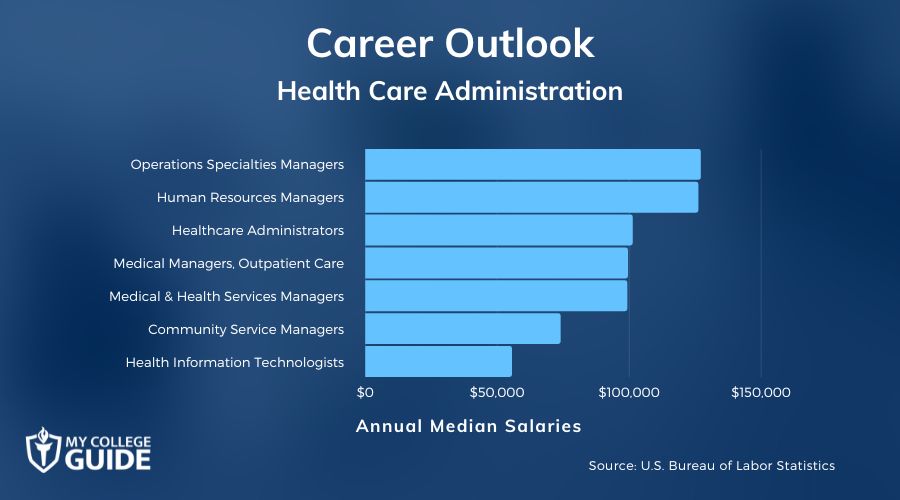
By nature, healthcare is a hands-on field, but there are several career options that you can pursue by earning a bachelors in healthcare administration online.
To give you an idea of the different occupations available after completing an online healthcare degree program, we have put together the following information on various jobs and their annual median salary according to the U.S. Bureau of Labor Statistics (BLS):
| Careers | Annual Median Salaries |
| Operations Specialties Managers | $127,140 |
| Human Resources Managers | $126,230 |
| Healthcare Administrators | $101,340 |
| Medical Managers, Outpatient Care Services | $99,540 |
| Medical and Health Services Managers | $99,290 |
| Social and Community Service Managers | $74,000 |
| Health Information Technologists and Medical Registrars | $55,560 |
| Medical Records Specialists | $46,660 |
| Senior Healthcare Assistants | $37,190 |
| Pharmacy Technicians | $36,740 |
You may make more or less depending on your experience, education, and skill level. Please keep in mind that some employers look for a minimum of a BA in Healthcare Administration to be considered for a few of these positions.
Healthcare is an in-demand career path that is constantly in need of educated professionals that are able to adapt to quickly changing environments. It is estimated that medical and health services managers will see a 28% growth over the next 10 years.
Editorial Listing ShortCode:
View a list of the top 40 healthcare careers to compare jobs and salaries in this field.
Bachelor of Health Administration Curriculum & Courses

While courses will vary by program, listed below are some common courses you may take to earn a health administration bachelors degree.
- Healthcare Economics: This course teaches the essential economic principles healthcare administrators need, including profitability and supply and demand.
- Foundations of Project Management: Students will learn the necessary components of the project life cycle, including planning, executing, and monitoring.
- Healthcare Finance: This course focuses on accounting and financial management, including account principles, managerial accounting, and long-term financing.
- Info Systems in Healthcare Organizations: Students in this course will learn to manage information systems, focusing on improving patient care and operations.
- Healthcare Marketing: This course teaches marketing concepts and strategies, including marketing campaigns, needs assessments, and evaluating results.
- Navigating the U.S. Healthcare System: This course provides an overview of the U.S. healthcare system, including public and private sectors, and health policy and legislation.
- Human Resource Functions: Students are introduced to the fundamentals of HR management, including creating an organizational culture, hiring, and managing.
- Ethical and Legal Considerations of Healthcare: Introduces students to key concepts, including ethical conduct, legal control, and regulatory environments in healthcare.
- Healthcare Quality Management: Students focus on operations and analysis to improve healthcare processes, outcomes, and patient experiences.
- Organization Behavior: This course focuses on essential leadership concepts, including group dynamics, organizational structure, power and politics, and culture.
In addition to the healthcare administration courses listed above, students may also be required to take general education courses, including science, math, and English.
How to Know if a Health Care Administration Degree is Right for Me

After looking over the career opportunities available in the healthcare field, it is time to consider if an online degree program is the right choice for you. If you are a motivated individual with a strong work ethic, you have a great chance of succeeding with the flexibility of distance education.
There are many advantages to taking college healthcare courses online, including:
- Potential to finish your healthcare degree in a shorter timeframe
- Interactive tools that allow you to learn specialized skills from the comfort of your home
- Flexibility to continue working a full-time healthcare job around your courses
- Lower tuition costs than many on-campus healthcare programs
By researching reputable colleges and looking ahead at the career outlook for various healthcare occupations, you can set the stage for success when choosing to enroll in an online healthcare degree program.
Choosing an Online Bachelor’s Degree in Healthcare Administration Program

Not all colleges offering degrees online are created equal, and it is important to do your research before committing to the university of your choice.
Healthcare is a specialized field, and avoiding “degree mill” schools is vital to ensure you are working towards a reputable degree.
- Accreditation: Accreditation is an essential aspect of a reputable online accounting degree program. Check to see if your chosen school is accredited.
- Student-to-Faculty Ratio: With the highly specialized nature of the healthcare field, you need to know that your college has the resources necessary to help you learn the necessary career skills. One way that you can be supported with online schooling is through low student-to-faculty ratios.
- Academic Advising and Student Services: In addition to qualified faculty and low-class ratios, the best online schools offer additional support to their student body to help them succeed.
- Cost: The cost of each program is also an important factor. Compare various programs to see which one fits your budget.
- Degrees Offered: Be sure to check with each school you are considering to ensure they offer your chosen degree program. Also, compare the various programs’ coursework to ensure the program fits with your desired career goals.
The right degree program will depend on your personal situation and the amount of flexibility you require.
Admissions Requirements

While admissions requirements will vary by school, listed below are some common requirements you may need for admission to a healthcare administration online school.
- Transcripts: Most programs will need copies of your complete high school transcripts and any other college courses you have taken.
- Minimum GPA: Some programs may require you to have earned a minimum GPA in your high school classes.
- SAT or ACT scores (if required): Some programs may require SAT or ACT scores with a minimum score requirement.
In addition to the above, some programs require you to talk to an admissions counselor and submit an online application.
Healthcare Administration Ongoing Education

There are numerous options among online degree programs that involve the world of healthcare. From diploma programs to graduate degrees, the degree program that is right for you depends on your long-term career goals and interests. Completing an online master’s degree in healthcare opens up a world of opportunity within specialized fields.
If you are interested in applying for mid to upper-level management positions or would like to work in the field of public health, then there are several online degree options available through reputable universities. Earning a master’s degree in healthcare will allow you to apply for professional career opportunities that include public health administration, research and science positions, and healthcare management.
Editorial Listing ShortCode:
When most people consider an online doctorate degree in healthcare, they likely think of physicians and other medical professionals. While these degrees involve lengthy residencies and specialized schooling, you can also earn a doctorate in less time that is focused on other healthcare subfields.
Online Healthcare Administration Degrees Accreditation
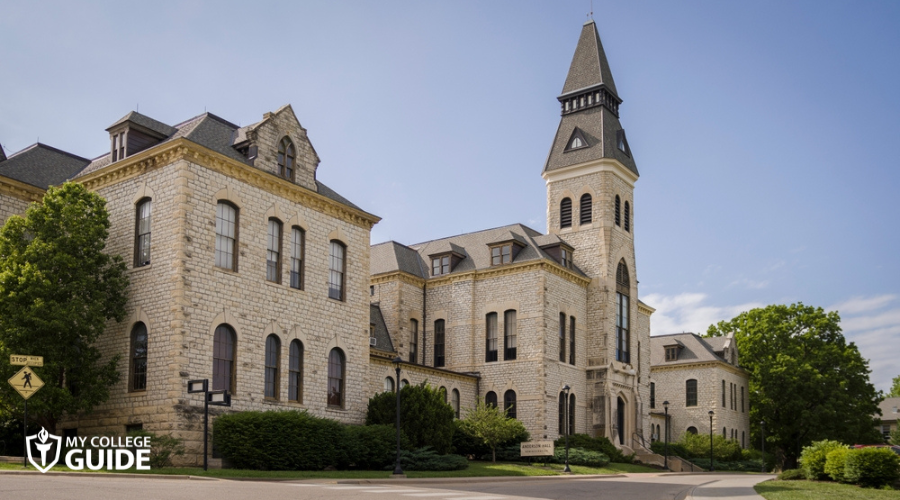
There are several recognized accrediting agencies in the United States, from regional accreditation to specialized agencies that focus on individual degree programs. If your college has gone through the accreditation process, it shows that they are committed to providing their students with a high-quality education within their program of study.
When considering the many options for online healthcare degrees, keep an eye out for the agencies that are recognized by the U.S. Department of Education to help you decide if the program offered is reputable.
Financial Aid and Scholarships

As you explore options for online health administration degrees, consider that there are also various options to help with the cost of your program.
If you are currently employed in a healthcare setting or related field, you can look into benefits offered through your employer, from tuition reimbursement to reduced tuition programs. Some schools and programs may also offer tuition assistance through scholarships or tuition discounts for select populations like active duty military.
You can also explore scholarship opportunities through numerous public and private organizations. Government loans and grants may also be an option for you, including Pell Grants for undergraduate students.
You can visit the Federal Student Aid website to learn more about grants and other financial assistance that may be available to you.
Healthcare Administration Professional Organizations

Joining a professional organization can have numerous benefits, including networking opportunities and professional development.
- American College of Healthcare Executives (ACHE): A professional society with a mission to advance leaders in healthcare and improve patient health.
- American Health Information Management Association (AHIMA): An organization dedicated to improving patient care through accurate and safe health information.
- Health Care Administrators Association (HCAA): A non-profit organization dedicated to improving health benefits administration’s quality, value, and sustainability.
Finding a professional organization that aligns with your goals and interests can allow you to learn from a diverse group of experienced professionals.
What is a Healthcare Administration Online Degree?

A healthcare administration online degree is a program that provides students with the skills and knowledge to manage all different aspects of healthcare departments and systems.
Students earning online health administration degrees learn to run daily operations, manage staff, budgets, finances, and health information, and ensure high-quality patient care. Many healthcare administration online schools offer concentrations students can choose from, including health policy, healthcare management, and healthcare informatics.
Editorial Listing ShortCode:
Students enter the workforce prepared to work in numerous settings, including hospitals, private practices, insurance companies, public health organizations, and consulting firms.
What Can You Do With a Degree in Healthcare Administration?

Successful graduates with a bachelor in health administration can pursue careers in a variety of settings, including government agencies, hospitals, and pharmaceutical companies.
Graduates interested in health policy may find opportunities with government agencies, insurance companies, and medical research and policy organizations. Individuals interested in health management can find employment in physicians’ offices, hospitals, nursing homes, and numerous other healthcare facilities and departments.
Management jobs include clinical managers, medical office or practice managers, health information managers, and nursing home administrators.
How Long Does it Take to Get Bachelors in Health Administration Degree Online?

How long it takes to complete your bachelor’s degree in health administration will vary due to several factors, including your enrollment status and course schedule.
If you are enrolled full-time and follow a traditional 16-week semester, you can complete your degree in four years. If you follow an 8-week semester and stay enrolled year-round, including during the summer, you can finish your degree in less time. If you are enrolled in courses part-time, completing your degree may take longer than four years.
What Jobs Can You Get With a Bachelor’s in Healthcare Administration?

Once you have earned your bachelor’s degree in health administration, you may find a variety of jobs that align with your degree concentration and career goals.
Many graduates become Medical and Health Service Managers responsible for managing entire facilities, including nursing homes, health clinics, or specific departments. Graduates interested in health information can pursue opportunities as Health Information Technologists, ensuring that patient data is accurate, complete, accessible, and protected.
Other graduates find opportunities as Human Resources Managers, with responsibilities including interviewing, hiring, and managing employee benefits and compensation.
What’s the Difference Between a Healthcare Management vs. Healthcare Administration Bachelor’s Degree?
While the terms management and administration are sometimes used interchangeably, these two degrees have some fundamental differences.
| Bachelors in Healthcare Management | Bachelors in Healthcare Administration |
|
|
The decisions of those in healthcare management will affect an entire organization, including professionals in healthcare administration roles, who manage their individual areas.
Is a BS in Healthcare Administration Worth It?

Yes, a BS in Healthcare Administration is worth it for many students who will find the healthcare industry growing with many in-demand jobs.
Students who earn their bachelor in health administration will learn valuable management, operations, communication, marketing, and finance skills. Students interested in furthering their education can build upon this degree and advance their healthcare careers into higher-level healthcare management positions.
Editorial Listing ShortCode:
Based on data from the Bureau of Labor Statistics, careers like Medical and Health Services Managers are projected to grow 28 percent over the next 10 years, much faster than average.
Universities Offering Online Bachelors in Healthcare Administration Degree Programs
Methodology: The following school list is in alphabetical order. To be included, a college or university must be regionally accredited and offer degree programs online or in a hybrid format.

Abilene Christian University offers a BS in Healthcare Administration with three concentration options: General, Public and Community Health, or Change Management. The program is entirely online and requires the completion of 120 credit hours. Some courses may be available in an accelerated format. ACU guarantees locked-in tuition.
Abilene Christian University is accredited by the Southern Association of Colleges and Schools Commission on Colleges.

AdventHealth University offers a BS in Healthcare Administration that can be earned online. The program requires the completion of 121 credit hours and a capstone project or an internship completed during the final year. Most courses are conducted in an asynchronous format. Potential courses include Legal Aspects of Healthcare, Patient Care Management, and Chronic Disease Epidemiology.
AdventHealth University is accredited by the Southern Association of Colleges and Schools Commission on Colleges.

Alvernia University offers a BS in Healthcare Administration that can be earned fully online at one’s own pace. There are several start dates offered throughout the year. The program requires the completion of 123 credits, with at least 48 credits in the major. Potential courses include Healthcare Literacy and Advocacy, Strategic Management, and Writing for Healthcare Science.
Alvernia University is accredited by the Middle States Commission on Higher Education.

American InterContinental University offers a Bachelor of Healthcare Management with a specialization in Health Services Administration Management. The program can be completed entirely online. It requires the completion of 180 credits, including a capstone project, and can typically be completed in 4 years. There are start dates offered every 5 weeks.
American InterContinental University is accredited by the Higher Learning Commission.

American Public University offers a BS in Healthcare Administration that can be completed fully online. The program requires the completion of 120 credits, and up to 90 qualifying credits may be transferred in. Courses are 8 to 16 weeks long and have monthly start dates. APU offers concentrations like Emergency Management and Addiction Treatment Facility Management.
American Public University is accredited by the Higher Learning Commission.

Aurora University offers a BS in Healthcare Administration. The program is entirely online, and its required internship may be completed locally. The completion of 120 credit hours is required to graduate. The program can typically be completed in 2 to 4 years, depending on transfer credits. Courses are 8 weeks long, and there are several start dates offered throughout the year.
Aurora University is accredited by the Higher Learning Commission.

Study.com ranked Belhaven in the top ten schools in the country for healthcare administration degrees. Belhaven offers a Bachelor of Health Administration that can be earned entirely online. Courses are 7 weeks long and conducted in an asynchronous format. There are multiple start dates offered throughout the year. The completion of 124 credit hours is required to graduate.
Belhaven University is accredited by the Southern Association of Colleges and Schools Commission on Colleges.

Cambridge College offers a BS in Healthcare Administration. The program is entirely online, and courses are conducted in an asynchronous, accelerated format. There are six sessions offered each year. The program offers two concentrations: Healthcare Reimbursement and Medical Office Administration. The completion of 120 credit hours is required to graduate.
Cambridge College is accredited by the New England Commission of Higher Education.

U.S. News & World Report ranked Charleston Southern University among the best schools in the country for online bachelor’s degrees. CSU offers a BS in Healthcare Administration that can be earned fully online. Courses are 7 weeks long. The program requires the completion of 125 credit hours and can potentially be finished in just 17 months.
Charleston Southern University is accredited by the Southern Association of Colleges and Schools Commission on Colleges.

City University of Seattle offers a BS in Healthcare Administration that can be completed entirely online, with some courses also available on campus. The program requires the completion of 180 quarter credits. Courses are 5 to 10 weeks long and offered several times each year. Potential courses include Healthcare Administration Budgeting and Finance, Health Informatics, and Healthcare Marketing.
CityU is accredited by the Northwest Commission on Colleges and Universities.

Colorado Christian University offers a BS in Healthcare Administration. The program is entirely online and taught through a Christian worldview. Courses are typically taken one at a time in 5 week blocks. The program requires the completion of 120 credit hours, and up to 90 qualifying credit hours may be transferred in.
Colorado Christian University is accredited by the Higher Learning Commission.
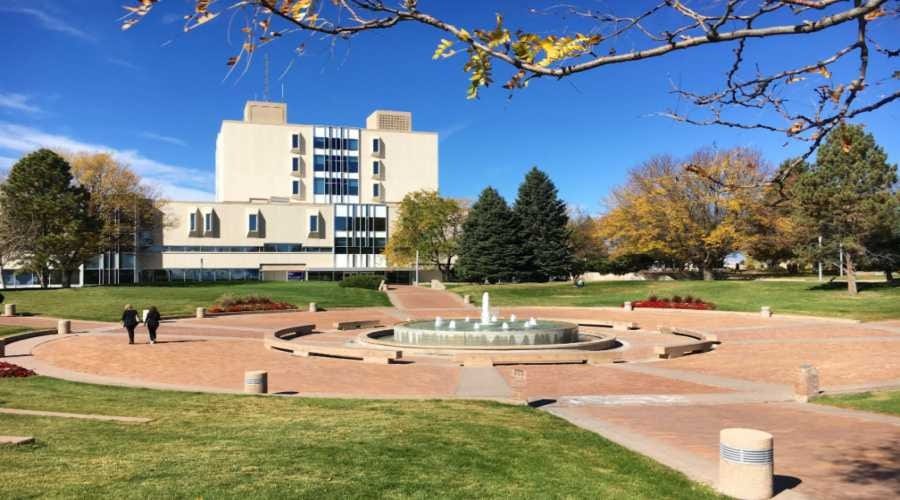
Online Schools Center ranked Colorado State University among the top 20 schools in the country for online bachelor’s degrees in healthcare administration. CSU offers a BS in Healthcare Administration and Management. Courses are fully online and asynchronous. The program follows an 8 week, accelerated course schedule with start dates each month.
Colorado State University is accredited by the Higher Learning Commission.

Columbia Southern University offers a BS in Healthcare Administration through its fully online program. The program requires the completion of 120 credit hours, and up to 90 qualifying credits may be transferred in.
Courses are conducted in an accelerated format, and there are multiple start dates offered throughout the year. Potential courses include Financial Management in Healthcare Organizations, Community Health, and Comparative Health Systems.
Columbia Southern University is accredited by the Southern Association of Colleges and Schools Commission on Colleges.

Concordia University – St. Paul offers a BA in Healthcare Administration. The program is entirely online and taught through a Christian, liberal arts worldview. The completion of 120 credit hours is required to graduate, and up to 90 qualifying credits may be transferred in. Courses are 8 weeks long, and the program can potentially be completed in 2 years.
Concordia University – St. Paul is accredited by the Higher Learning Commission.

George Fox University offers a BA in Healthcare Administration. Applicants are expected to meet general education requirements before applying. Students travel through the program in a cohort. Classes are 5 to 6 weeks long, and the program is typically completed in 16 months. Some program components are synchronous.
George Fox University is accredited by the Northwest Commission on Colleges and Universities.

Grand Canyon University offers a BS in Health Care Administration that can be completed fully online or on campus. The program requires the completion of 120 credit hours, and up to 90 qualifying credits may be transferred in. Courses are typically 7 to 8 weeks long and asynchronous. There are several start dates offered throughout the year.
GCU is accredited by the Higher Learning Commission.

Indiana Wesleyan University offers a BS in Healthcare Administration that can be earned entirely online. The program requires the completion of a total of 120 credit hours, and prospective students must have 60 transferable credit hours. It can potentially be completed in just 19 months, depending on transfer credits. Courses are 5 to 8 weeks long and taken one at a time.
Indiana Wesleyan University is accredited by the Higher Learning Commission.

Liberty University offers a fully online program for a BS in Healthcare Administration. Up to 75% of the program’s 120 required credit hours may be transferred in. Courses are 8 weeks long and offer multiple start dates each year. The program can potentially be completed in 3.5 years.
Liberty University is accredited by the Southern Association of Colleges and Schools Commission on Colleges.

Loma Linda University offers a degree completion program for a BS in Health-Care Administration that can be completed fully online. Applicants are required to have at least 60 transferable credit hours before applying. The program requires the completion of 90 quarter credits in major courses. It can potentially be completed in just 2 years.
Loma Linda University is accredited by the Western Association of Schools and Colleges.

Northeastern University’s BS in Healthcare Administration may be customized to fit career goals. The program is fully online but offers opportunities for hands-on experience.
Courses follow a semester schedule, with start dates in the fall, spring, and summer. The program requires the completion of 120 semester hours minimum. Potential courses include Ethical Issues in Healthcare, Human Resources Management, and Healthcare Policy.
Northeastern University is accredited by the New England Commission of Higher Education.

Oral Roberts University offers a BS in Healthcare Administration that can be earned entirely online. The program requires the completion of 120 credit hours. Courses are 7 weeks long, and there are six start dates offered each year.
When enrolled full-time, the program can potentially be completed in 45 months. Potential courses include Design in Healthcare Delivery, Leadership in Health Administration, and Emergency and Disaster Management in Healthcare.
Oral Roberts University is accredited by the Higher Learning Commission.

Saint Leo University offers a BS in Healthcare Administration that can be earned online, on campus, or at a learning center. The program requires an internship during the final year. Courses are 10 weeks long, and there are seven start dates offered each year. The program can typically be completed in 4 years.
Saint Leo University is accredited by the Southern Association of Colleges and Schools Commission on Colleges.

Sam Houston State University offers a BS in Health Care Administration that can be completed mostly online or on campus. Online students may have to come to campus. The program requires the completion of 120 credit hours. Courses are offered in the fall, spring, and summer.
Sam Houston State University is accredited by the Southern Association of Colleges and Schools Commission on Colleges.

Southeast Missouri State University offers a BSBA in Healthcare Administration that can be completed entirely online. The program requires the completion of 120 credit hours, including 24 hours in the field of healthcare administration. Students may be able to begin working on a master’s degree while earning their BSBA. Courses follow a semester schedule and are offered in the fall and spring.
SEMO is accredited by the Higher Learning Commission.

Southern New Hampshire University offers a BS in Healthcare Administration. The online program requires the completion of 120 credits, and up to 90 qualifying credits may be transferred in. Courses are 8 weeks long, and there are six start dates offered each year. The program offers the choice between two concentrations: Health Information Management or Patient Safety and Quality.
SNHU is accredited by the New England Commission of Higher Education, Inc.
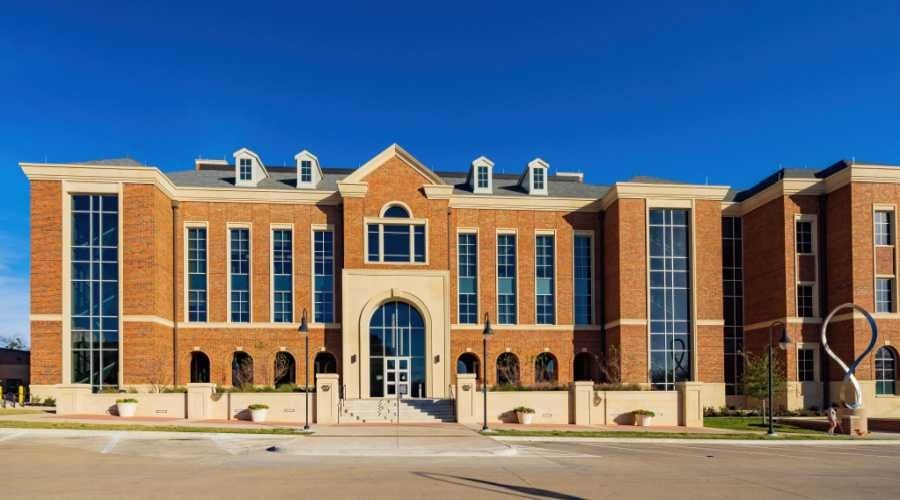
Texas Woman’s University offers a BBA in Health Care Administration that may be earned online, on campus, or in a hybrid format. The program offers two tracks: General and Clinical. Students may choose from a General or Clinical track. Some courses are offered in an accelerated format. Those that have a qualifying associate degree to transfer in toward the program’s 120 credit hours can potentially graduate in just 2 years.
Texas Woman’s University is accredited by the Southern Association of Colleges and Schools Commission on Colleges.

Trevecca Nazarene University offers a degree completion program for a BS in Healthcare Administration. This program requires applicants to already have general education credits. Students complete the online program with a cohort, but courses are asynchronous. The program requires the completion of 36 credit hours and can potentially be completed in just 18 months.
Trevecca Nazarene University is accredited by the Southern Association of Colleges and Schools Commission on Colleges.

The University of Arizona offers a BA in Healthcare Administration that can be earned fully online through its Global Campus. The program requires the completion of 120 credit hours, and up to 90 credits may be transferred in. Courses are 5 to 6 weeks long, and there are several start dates offered throughout the year.
The University of Arizona is accredited by the Higher Learning Commission.
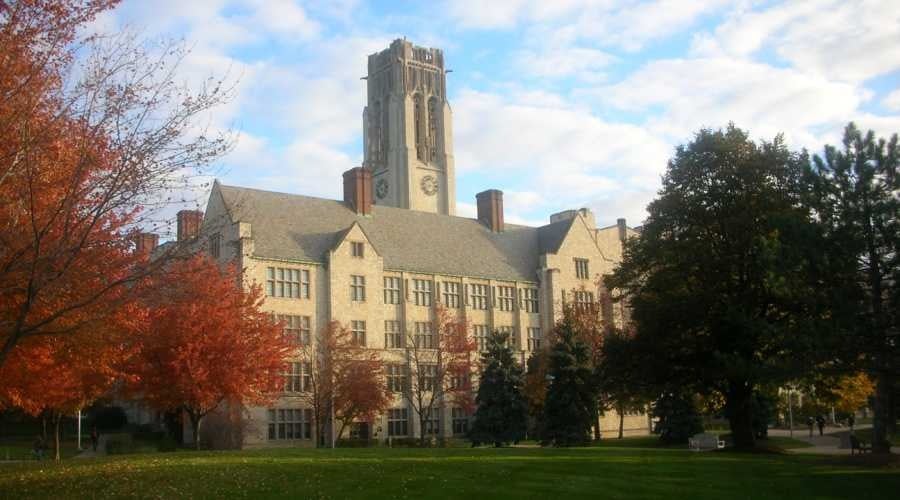
The University of Toledo offers a BS in Healthcare Administration. The program is entirely online, and courses are conducted in an asynchronous learning format. Students who already have an associate degree in a related field may be able to finish the program in just 2 years. Courses follow a semester schedule.
The University of Toledo is accredited by the Higher Learning Commission.

The University of West Florida offers a BS in Health Sciences with a specialization in Healthcare Administration. Best Colleges ranked the program the fourth best online bachelor’s program in health sciences. The program is online, but an internship is required. The courses are 8 weeks long. The completion of 120 credit hours is required to graduate.
The University of West Florida is accredited by the Southern Association of Colleges and Schools Commission on Colleges.
Getting Your Bachelor in Healthcare Administration Degree Online

As the healthcare industry continues to grow, there will always be a need for professionals who can effectively manage the numerous components of a healthcare organization.
These responsibilities can include managing day-to-day operations, finances, marketing, human resources, and health information, aiming to improve patient care and healthcare outcomes. With a variety of concentrations to choose from, you can tailor your health administration bachelors degree to your career goals and interests.
If you want to make a difference in healthcare and impact an organization’s operations, you can look into online health administration degrees from accredited schools.
